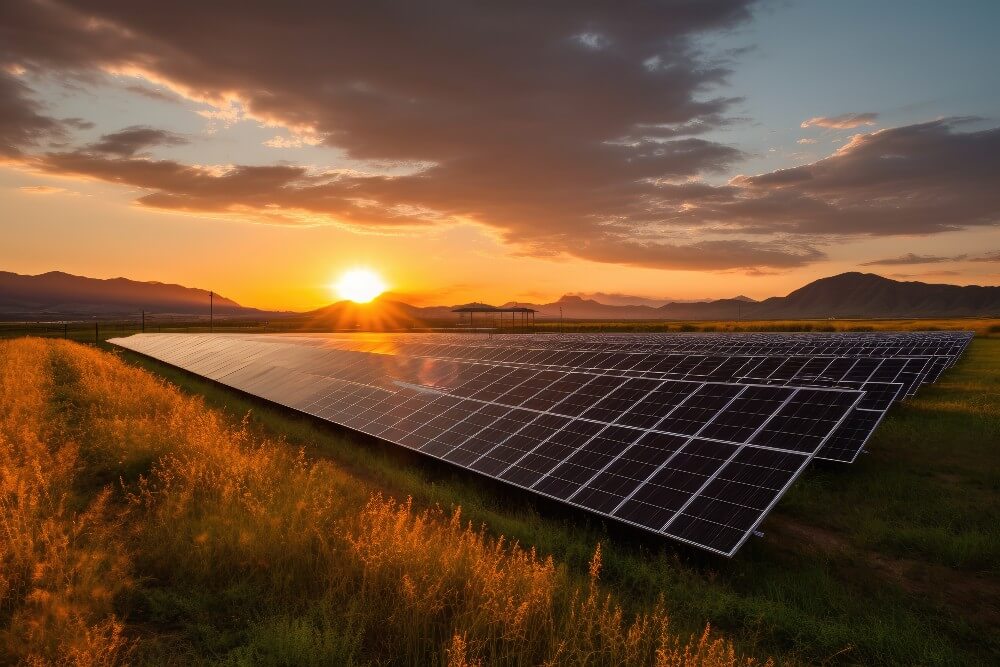Solar Farm Projects – What Should Landowners Consider?
For many landowners, solar panel projects represent an attractive investment opportunity. Understandably so, given that they can provide a suitable way to diversify, offer an alternative use for vacant land and help to reduce carbon emissions.
It should come as no surprise to learn that an increasing number of landowners are exploring the potential of renewable energy projects, like solar farms, as they look ahead to the future.
That said, solar farm projects are by no means straightforward. There are several factors landowners must consider, all of which will ultimately affect whether it would prove to be a worthwhile investment.
Why invest in solar farms?
The UK’s legally binding 2050 net zero target was set to become progressively important, with the initial net zero pledge from the Government noting that a ‘fully decarbonised power system’ would be composed predominantly of wind and solar.
That said, recent statements from the Prime Minister suggest that the government may be cooling on these commitments. For instance, the ban on the sale of new petrol and diesel cars was pushed back from 2030 to 2035.
The ongoing energy crisis and continuing tensions with Russia also suggest that renewable energy sources aren’t just something we will be planning ahead for – they are likely to be extremely important in the short-term.
It is also important to note that landowners may have to consider alternative uses for their land in the future, particularly due to the ending of the Basic Payment Scheme and the ongoing uncertainty regarding the replacement schemes. Land could potentially be converted for renewable energy generation instead.
What considerations should landowners make?
Solar panel projects are complex, with many moving parts needing to be carefully managed and hoops that need to be jumped through. Landowners who are interested in the prospect of moving ahead with a solar farm project will typically need to take the following factors into consideration:
Finding the right partner
When exploring any type of solar farm project, no matter the proposed scale, it is important that you choose the right partner, and have experienced agents on your side. This means that you will need to do your homework, taking the potential partner’s track record into account to see what their reputation is and what projects they have previously worked on.
By extension, you will also need to assess what the structure of an agreement will look like. While an option agreement is the most likely type of agreement, you will still need to establish exactly how long the option lasts for, and whether any extensions would be required to account for any delays or appeals that take place during the planning permission process.
Maintaining strong relationships with the local authority
Installing a solar farm will require planning permission:
- Solar farms with a generating capacity below 50 megawatts (MW) fall under the remit of the Local Planning Authority (LPA) and require planning permission.
- Solar farms with a generating capacity above 50 megawatts (MW) are considered ‘nationally significant infrastructure projects’ (NSIPs) and require development consent from the Secretary of State for the Department of Energy Security and Net Zero (DESNZ).
Site suitability
The suitability of the proposed site for the solar farm project will be a major consideration and will influence the decision as to whether a solar farm project should go ahead.
As a landowner, you should consider:
- What access routes exist or would need to be created?
- How will cables be laid?
- Will an on-site or off-site substation be needed?
- How will tracks to and from the site be created?
Additional issues such as whether there are any covenants, third party rights and public footpaths should also be considered. Due diligence in this area is key.
Financial implications
As a landowner, you need to consider the tax implications, as the change of use to a solar farm project is likely to result in a loss of the agricultural tax reliefs. You should always take advice from a specialist accountant before proceeding with such a project.
You will also need to check whether moving ahead with a solar farm project will have an effect on any subsidies that are in place in relation to the use of agricultural land.
Solar farms will often prove to be a valuable stream of income, but landowners will always need to weigh up whether this is actually in their best interests.
Here to help
As commercial property and rural land experts, our team can work alongside landowners to advise on various issues related to solar farm projects, ensuring that the project proceeds as efficiently as possible.
Drawing on our previous experience advising clients in this sector, we can help you to plan effectively and deal with any challenges that arise, allowing you to maximise the value of your investment.
To discuss your situation or to receive bespoke legal support, please contact our Commercial Property team today.
Please note the contents of this article are given for information only and must not be relied upon. Legal advice should always be sought in relation to specific circumstances.

